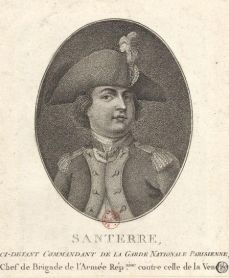Le Société de Messieurs Français / The Society of French Gentlemen
As of now, the Revolution has been lost.
Le Société de Messieurs Français has found the King, the Government and the Constitution incapable of leading the French People of any estate. Their attempts have been admirable, however it is obvious that the monarchy is inherently incapable of establishing the rule of law and protecting not only the People, but the Church as well.
Insofar as that the current Government and it's system has failed, the following edicts have been issued:
~ Whereas the Government has failed the Law, it is found guilty in the eyes of Le Société.
Therefore, no longer legitimate, the Police and National Guard are hereby ordered to defend the Revolution and arrest the members Government and force the dissolution of Parliament.
~ Whereas the Government has failed the People, it is found guilty in the eyes of Le Société.
Therefore, no longer legitimate, the members of Government will be put to trial by the members of the Revolution and be found either innocent or guilty in a court of Law.
~ Whereas the Monarchists have declared their opposition to the People, they are found guilty in the eyes of Le Société.
Therefore all Monarchist clubs and organisations shall be closed and all noted members shall be arrested in order to face popular trial.
Therefore the following will occur. The Government shall be subject to dissolution, the members of which along with the Royal Family shall be arrested, all monarchists will be subject to public trial and the Revolution will succeed in it's final form. The Police, Judiciary, National Guard and Navy, all represented by Le Société, are hereby ordered to defend France and the Revolution.
Viva la Revolution, Viva la France!
Signed Messieurs - Vincent Parént
- Per Le Goff
- Charles Pierre-Francois Augereau







